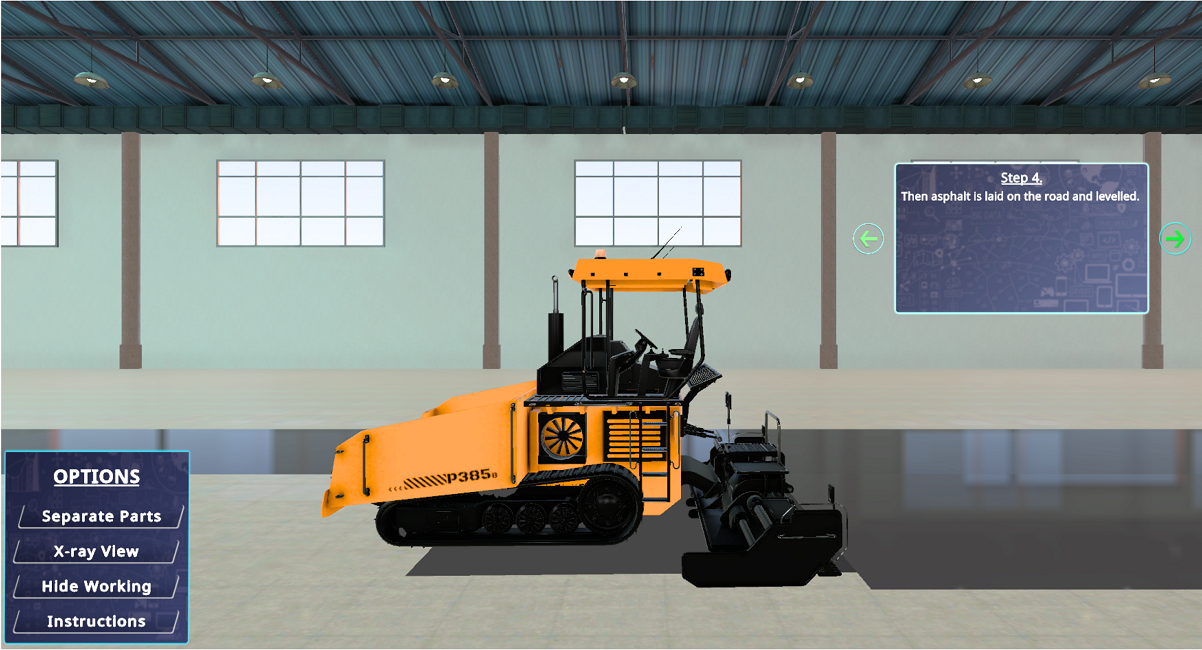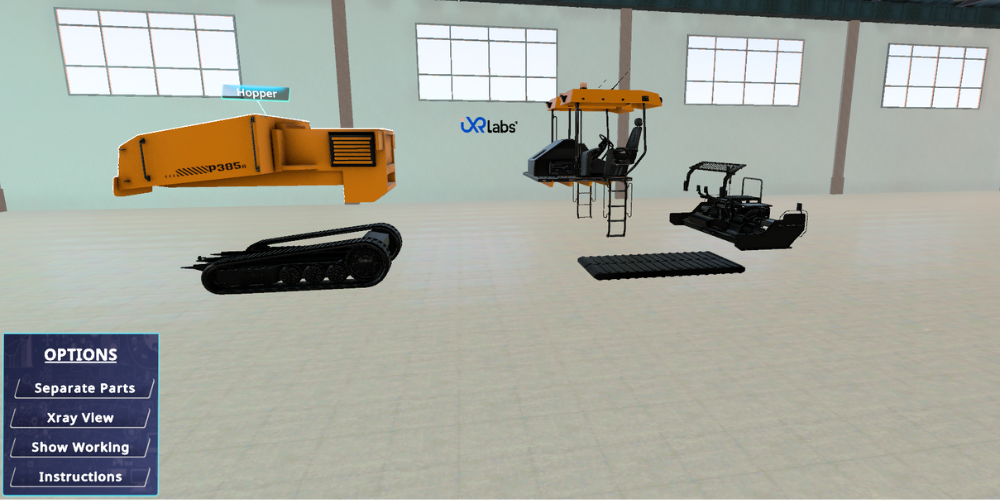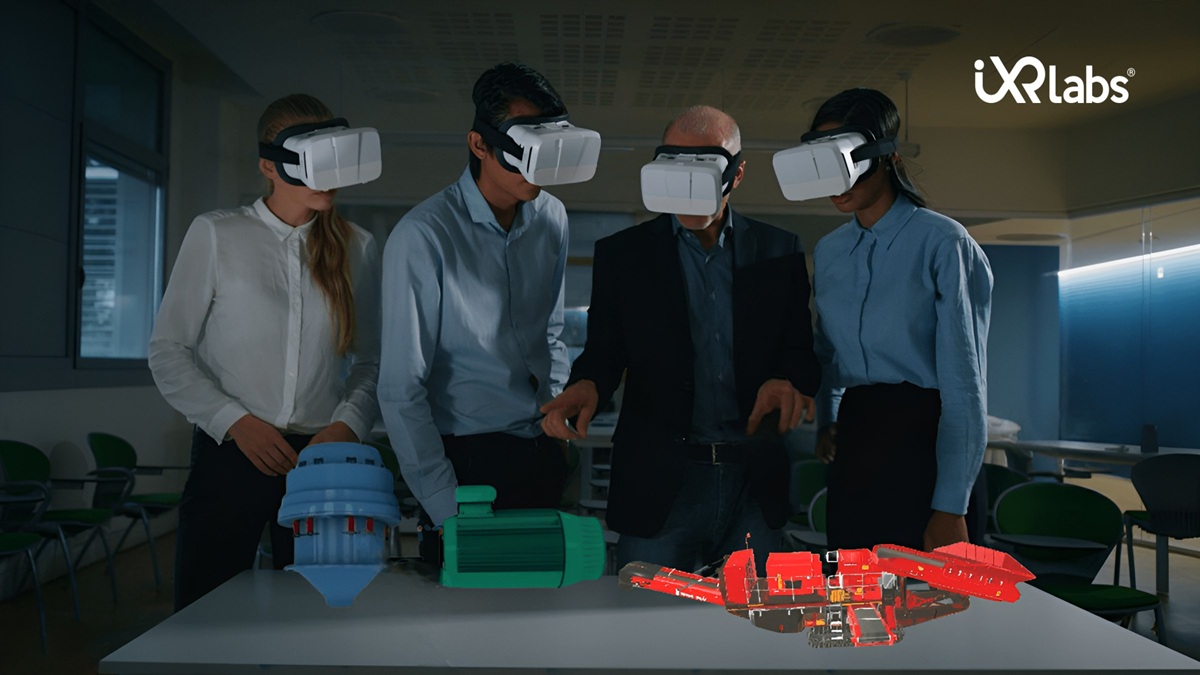Best Practices to Teach Asphalt Paver to Engineering Students

Leverage Interactive Virtual Reality Models
Interactive Virtual Reality models provide an unparalleled platform for visual and tactile learning. When addressing complex machinery like asphalt pavers, interactive models can disentangle intricate components, making understanding more intuitive.
- Interactive 3D insights into the parts and operations of asphalt paver machines that allow them to see how does an asphalt paver works.
- Simulated experiences that allow students to control machinery in a risk-free virtual environment.
- Engaging challenges where students troubleshoot common issues, enhancing problem-solving skills.
Through such interactive platforms, students can get a hands-on feel of the machinery without the constraints of a physical setup.
Introduce Gamified Learning Experiences

Gamified experiences turn passive learning into an active endeavor
Incorporate Advanced Technologies
The inclusion of VR in higher education, especially in technical fields, can significantly enhance comprehension. By immersing students in a virtual construction environment, they can experience asphalt paving firsthand.
☑️ Experiential Learning through VR
Imagine being able to transport students to a bustling construction site, allowing them to navigate the intricacies of asphalt laying, all within the safety and comfort of the classroom. With VR, such experiential learning is not only possible but is also highly engaging.
☑️ Real-time Simulation
One of the primary advantages of using VR for higher education is the ability to simulate real-world conditions. Students can adjust variables, such as weather conditions or machinery settings, to observe how different factors impact the paving process.
This dynamic approach to learning helps in cultivating problem-solving skills and fosters a deeper understanding of the subject.
☑️ Safety and Familiarization
Before students venture onto actual construction sites, VR training can help familiarize them with safety protocols, machine operations, and the overall environment. This ensures that when they do step on-site, they're well-prepared, minimizing potential hazards.
☑️ Collaborative Learning
VR modules from iXR Labs enable students to work collaboratively in a virtual space. They can undertake team projects, share insights, and learn collectively, even if they're physically distant. This fosters a culture of collaborative problem-solving and shared experiences.
☑️ Constant Evolution with Edtech
Beyond just VR, the integration of edtech in enhancing higher education paves the way for the introduction of other cutting-edge technologies.
Integrate Real-World Applications

One of the most effective ways to kindle interest and enthusiasm among engineering students is to showcase the real-world applications of the concepts they are learning. While theoretical knowledge forms the foundation, it is the practical implementation that truly excites curious minds.
☑️ Link Theory to Modern Projects
Begin by discussing ongoing and recent infrastructure developments in the region or globally that prominently feature asphalt paving. Highlight the complexities, challenges, and innovative solutions employed in these projects, showcasing the relevance of classroom learning.
☑️ Innovations in Machinery
As technology evolves, so does machinery. Discuss the latest advancements in paving equipment, from autonomous machinery to those powered by sustainable energy sources.
☑️ Sustainability in Paving
With growing concerns about the environment, the emphasis on sustainable materials and methods in paving has never been higher. Discuss emerging research on eco-friendly asphalt materials, such as those incorporating recycled plastics or those designed to combat urban heat islands.
☑️ Guest Lectures
Invite seasoned engineers or experts from the field to share their experiences, challenges, and learnings. These real-world stories, combined with technical expertise, can offer students a comprehensive view of the industry.
☑️ Site Visits
Organizing field trips to active project sites can be immensely enlightening. Witnessing first-hand the machinery in action, observing the challenges of an actual site, and understanding the intricacies of project management can be a transformative experience for many students. It gives them a tangible sense of the industry they're preparing to enter.
Highlight Career Opportunities
Emphasizing the professional opportunities awaiting students post-graduation can significantly enhance their engagement and dedication to their studies. The career prospects are diverse and plentiful in the realm of asphalt paver technology and its associated sectors.
☑️ Asphalt Technology Specialist
With a deep understanding of the various types of asphalts and their applications, these professionals are essential in developing better and more durable road surfaces. They also work closely with researchers to innovate and find eco-friendly solutions for the industry.
☑️ Machinery Management Expert
Focused on the operation, maintenance, and optimization of heavy machinery used in paving, these individuals ensure that projects run smoothly and efficiently. Their expertise can lead to reduced operational costs and increased longevity of the machinery.
☑️ Urban Infrastructure Planner
As cities grow and evolve, so does the need for robust infrastructure planning. These professionals work on designing and overseeing the development of roads, ensuring they are sustainable, durable, and fit within the urban landscape's broader context.
☑️ Paving Project Manager
In a role that combines technical knowledge with managerial skills, these professionals oversee asphalt paving projects from conception to completion, ensuring timelines, budgets, and quality standards are met.
☑️ Asphalt Quality Control Analyst
Quality is paramount in the world of paving, and these analysts ensure that the asphalt mixtures used meet the necessary standards. They test samples, analyze results, and suggest adjustments to ensure the highest quality output.
☑️ Training and Development Specialist
With the advent of new technologies and methods, there's a constant need for training in the industry. These specialists create training modules, conduct workshops, and ensure that the workforce is updated with the latest in asphalt paver technology.

Conclusion
Teaching the complexities of asphalt paver machinery and its processes to engineering students demands an innovative approach. The blend of interactive models, gamified experiences, VR training in higher education, and real-world context can transform the educational journey.



.png)

.png)